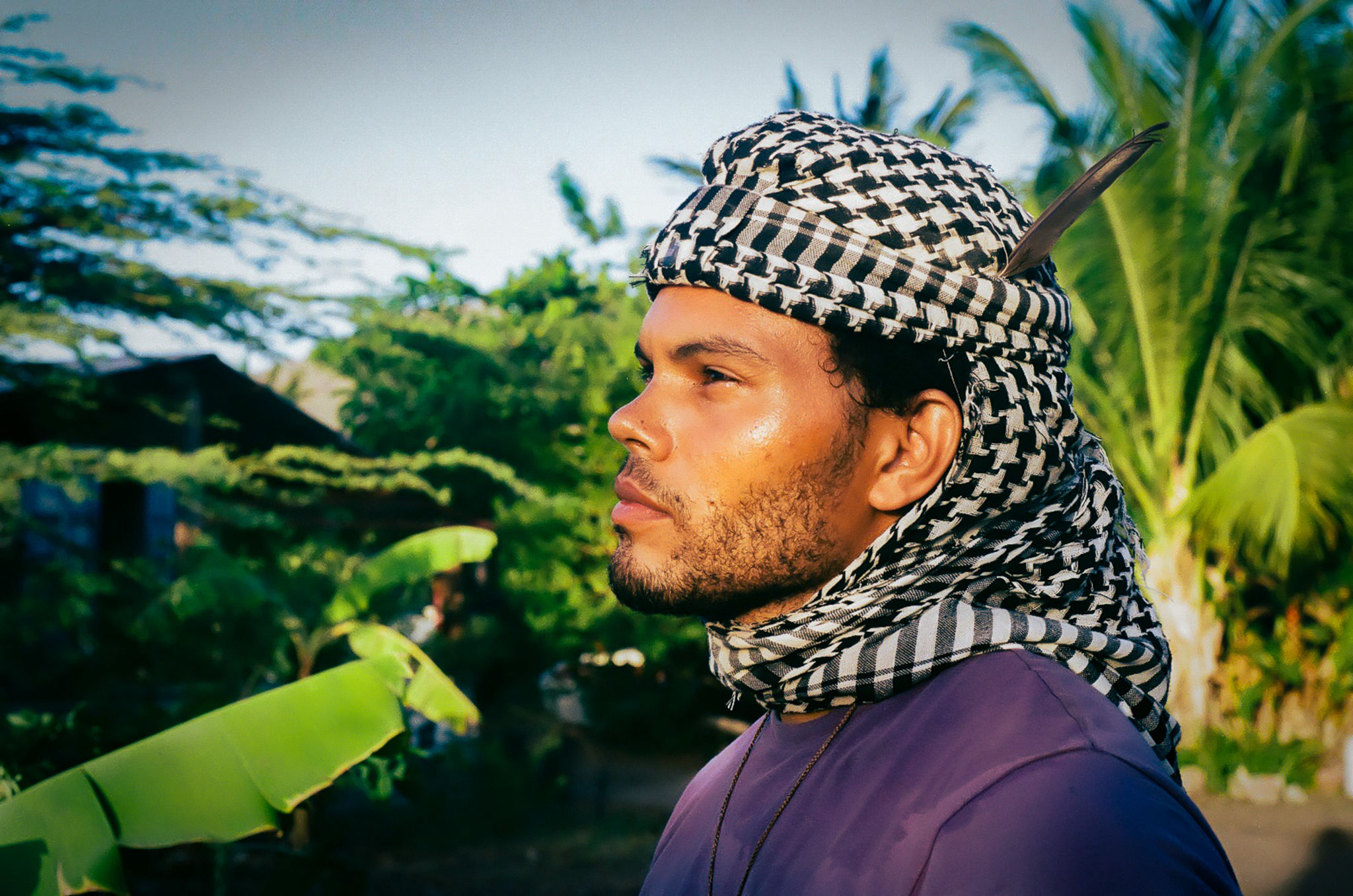Healthy living fascinates Curaçaoan syntropic farmer Daniel Parris (30). After having studied medicine in Mexico, he eventually returned to his ‘magical place’ on the Caribbean island of Curaçao: his father’s farm (kunuku) where Daniel now grows fruit and vegetables.
In fact, Daniel was shocked by how – after his studies – his father’s once so fertile land looked completely overgrown and barren. The recovery of the kunuku challenged him and ultimately gave him new insights into nutrition and health that studying medicine could not have offered him.
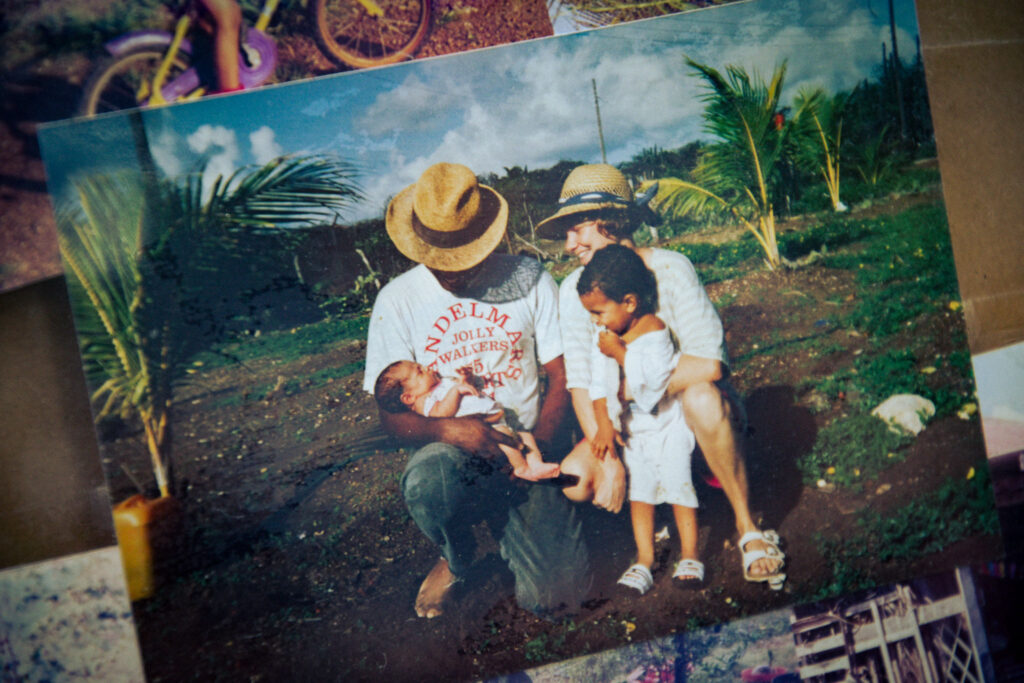
“Planting on Curaçao is not easy anyway,” says Daniel. “There is a lot of drought, a lot of wind and a lot of arid soil. We also get much less rain than before. And the many goats – which are not native to the island – eat almost all the ground cover.”
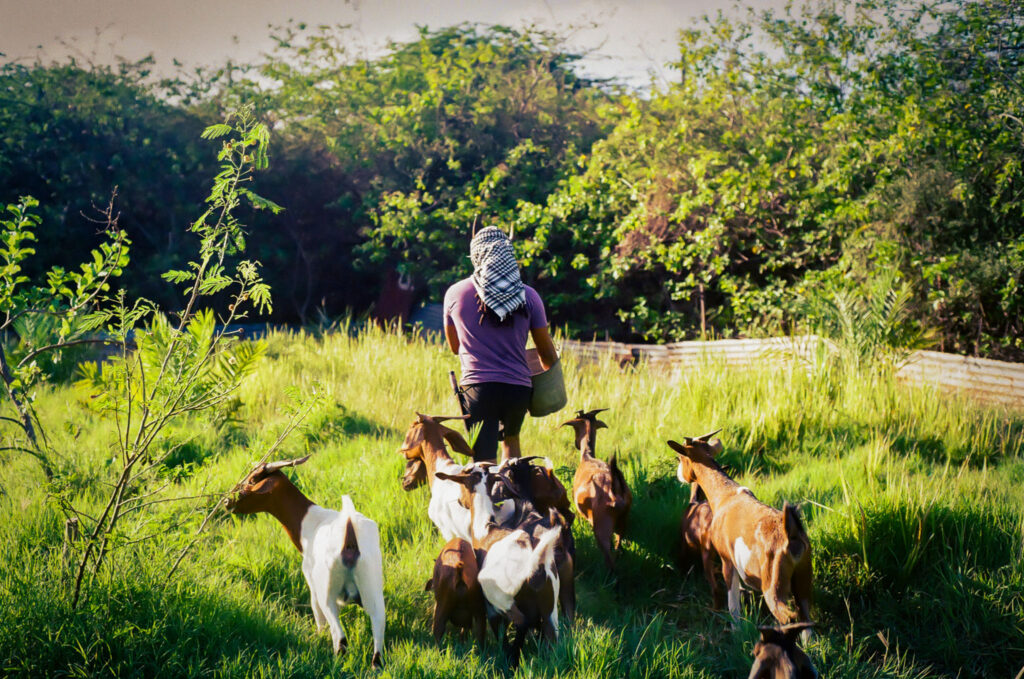
“I had some basic knowledge about planting from my father, but my first attempts completely failed. I wasn’t using my water efficiently at all and the well dried up quickly. All the plants then also dried out and died.”
Daniel went looking for people who were also working on the common problem of depleted soil on the island. He met some of them during eco-workshops, where the participants could often be counted on one hand. The members of this small group became the pioneers in the field of ‘syntropic farming’ in Curaçao, a method of agriculture that focuses on keeping the soil fertile.
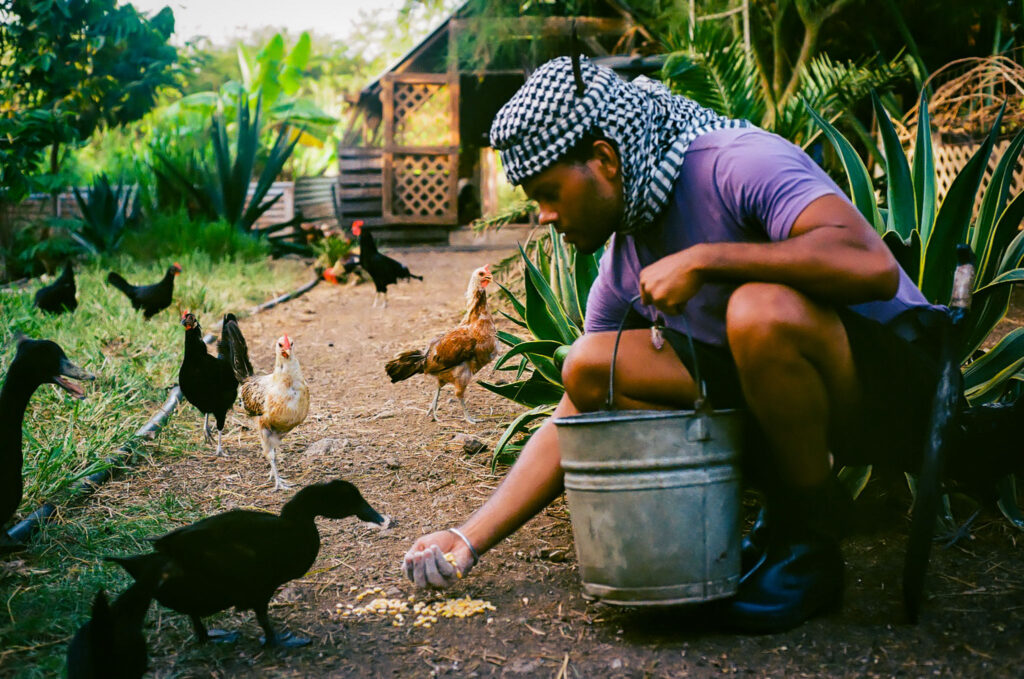
“Uncovered soil in this climate is like an open wound, it burns. In a healthy forest you will never find ‘bare’ soil. That’s why soil cover is one of the pillars of this approach. And that’s, for example, why I planted grass all around the property.”
Centrally located in the kunuku is the so-called ‘food forest’, a mix of local and tropical trees and crops, that follows the pillars of syntropic farming.
“Just leave the fallen leaves alone, is my advice. They protect your soil from sun and wind erosion. Also important: don’t always plant the same type of crop in the same place. Pika (chili), bananas and papaya have a relatively short cycle. We plant these at the same time as and in the middle of fruit trees with a longer cycle. This way they naturally follow each other up and we don’t have to replant. We also plant them on as small an area as possible. This ensures that you maximize the transfer of energy from the sun and CO2 from the atmosphere to the soil.”
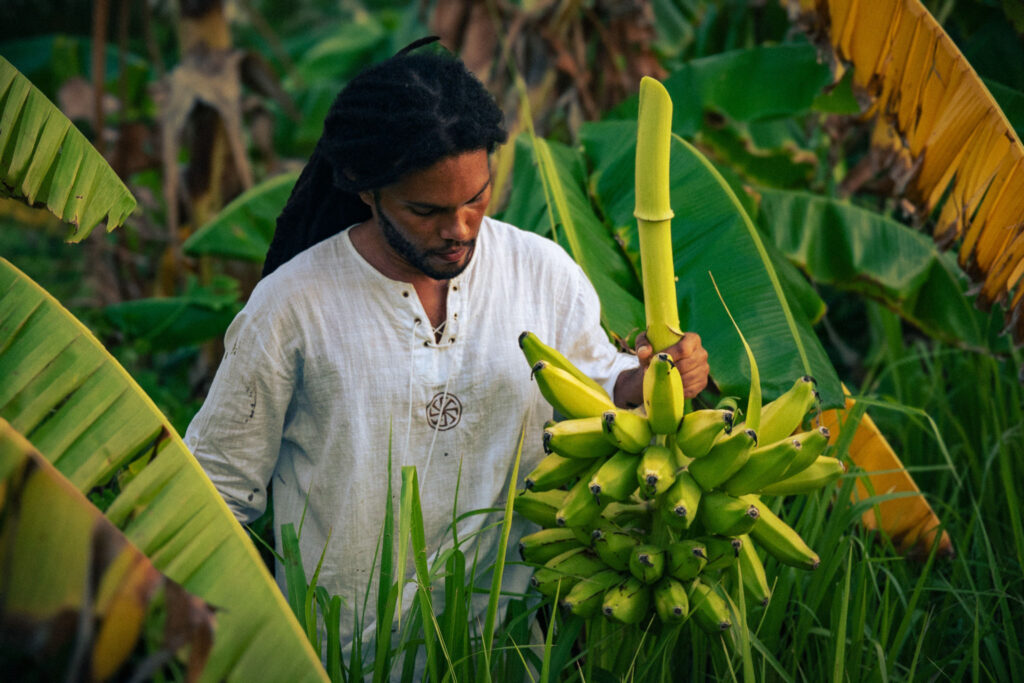
Does farming bring Daniel happiness in Curaçao? He doesn’t expect his kunuku to be a cash cow. For him, happiness is all about the connection with nature. He wants to find out how you can grow sustainably on this island and then share that knowledge.
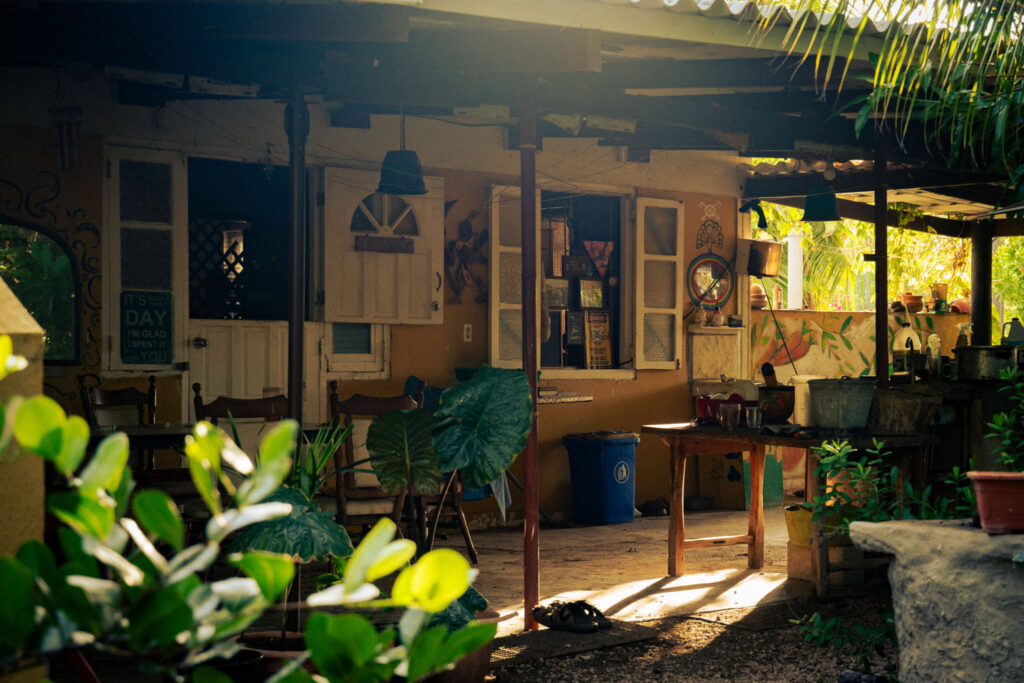
“The importance for me is to reconnect with the source of our life: the earth. A connection that we are all looking for today. I quit my studies and gave up work to consciously pursue this lifestyle. This is a lifestyle that perhaps not many people in Curaçao share with me, but that people can hopefully draw inspiration from. Hopefully this kunuku can be an example for those who sincerely strive for a simple life and for mental and spiritual growth.”
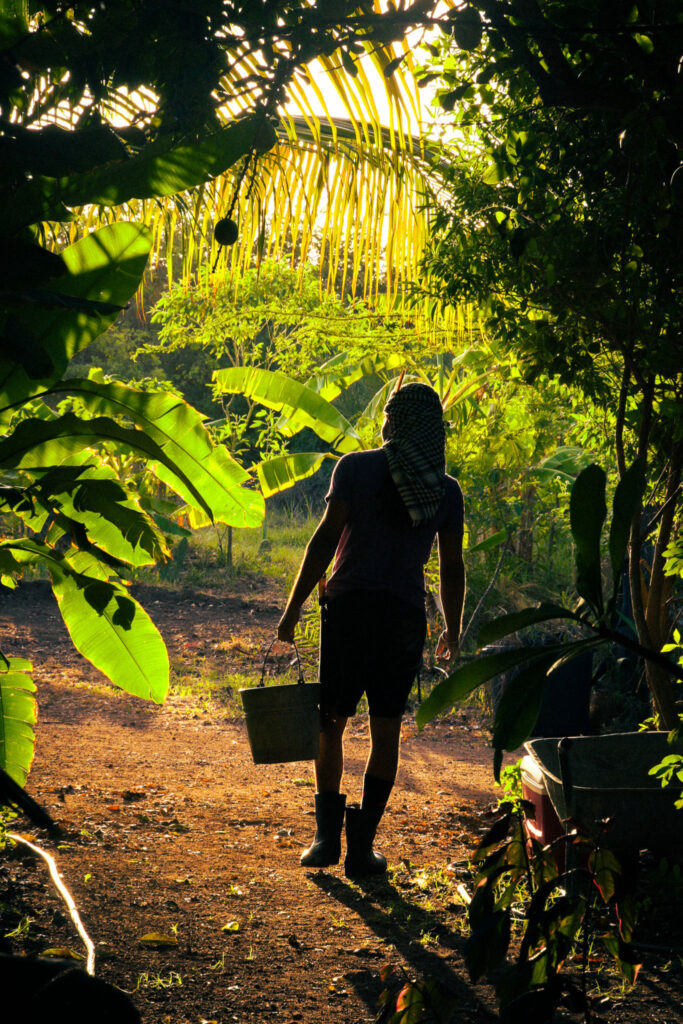
Islands is a series of portraits of people who have a unique hobby or lifestyle on the Caribbean island of Curaçao. They are ‘islands unto themselves’, who can be seen as ‘strange’ locally, but often turn out to be a source of culture and inspiration for the island. Words and photography by Lyangelo Vasquez
